SCARLETT BOWMAN
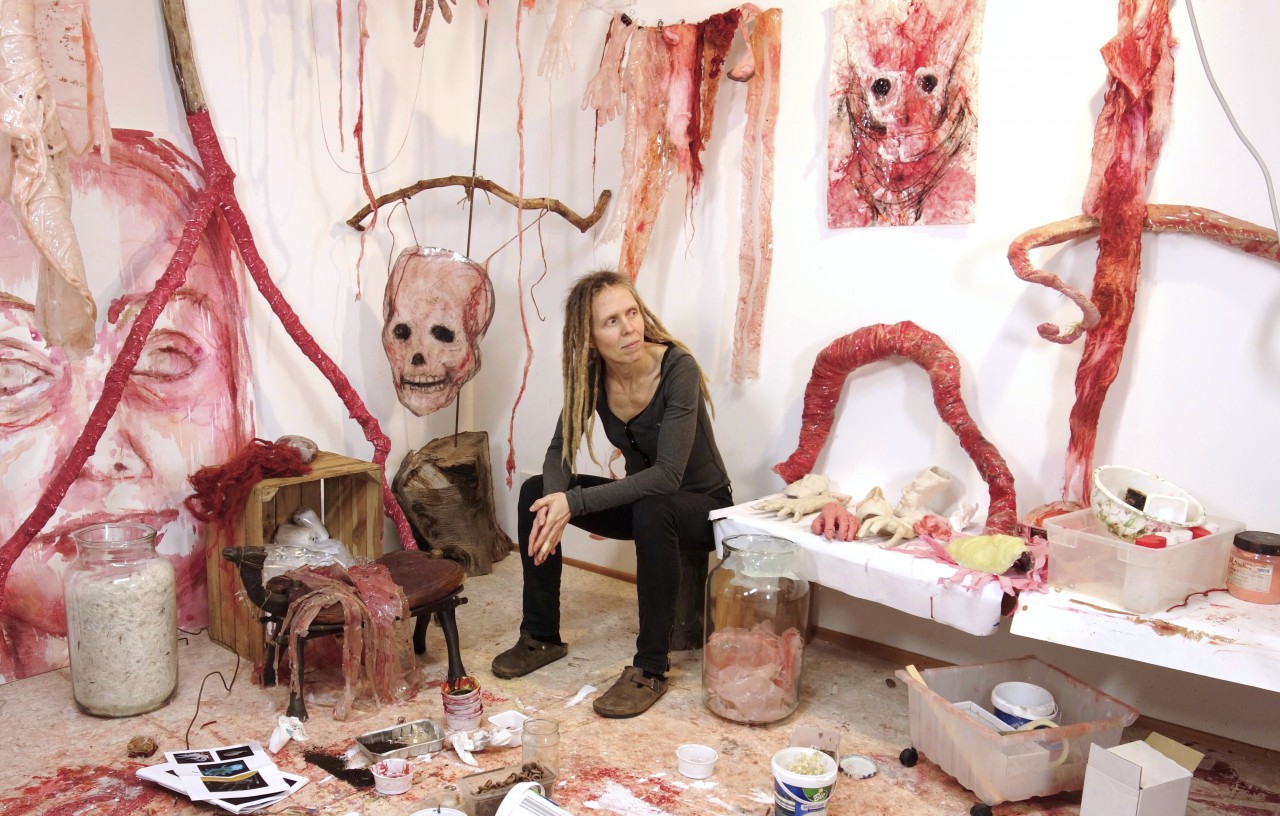
Corry Siw Mirski
Costa Rica, pacific coast
...Page is loading...

Costa Rica, pacific coast
By Tina Sauerländer
Her fleshy red brims over with vitality. It is the color of the blood flowing through our veins. The constrictions, stitches and scars in Corry Siw Mirski's work drastically reveal the fragility of the human body. In their alleged brutality, they symbolize the primal fear of the decline of physical well-being and our own existence. The materials used by the artist as well as their stylistic language are soft,...
By Tina Sauerländer
Her fleshy red brims over with vitality. It is the color of the blood flowing through our veins. The constrictions, stitches and scars in Corry Siw Mirski's work drastically reveal the fragility of the human body. In their alleged brutality, they symbolize the primal fear of the decline of physical well-being and our own existence. The materials used by the artist as well as their stylistic language are soft, organic and natural. They contrast cultural constructions with right angles, corners and edges. Corry Siw Mirski uses straw, seeds, cherry pits or cicada skins, which she incorporates into silicone along with red pigments. A translucent, shiny and skin-like surface results. The natural and perishable materials evoke fertility and vitality as well as decay and death. Corry Siw Mirski’s works seem macabre, violent or threatening at first glance because they symbolize repressed fears. Thereby the artist calls for a change in the perception and evaluation of these supposedly negative emotions in order to integrate them as a normal part of our existence and life. She thinks in the spirit of the ancient philosopher Epictetus, “It is not things that disturb us, but our interpretation of their significance.”
For the full text version, and additional context about the deeper philosophical backgrounds of Corry Siw Mirski works, see her final presentation at the Academy of Fine Art (2015) and the Artist Talk between this author and the artist on her website.
Corry Siw Mirski grew up in Cologne and Argentina. She has been engaged in art since her youth, starting with a focus on painting and drawing, but she always enjoyed to explore other possibilities to express herself in visual arts. Her first exhibition was in 1998. Although she had this strong devotion to art, she first studied with great passion philosophy in Vienna, finishing her studies with a master degree. Ensuing her study of philosophy she became a mother of four children, but even then, she couldn't forget her dream to become an artist. So in 2010 she began her art study at the Akademie für Malerei in Berlin and graduated with honours in 2015. Corry now lives in a spacious home in the outskirts of Berlin with plenty of space for her work.
www.corrysmirski.de
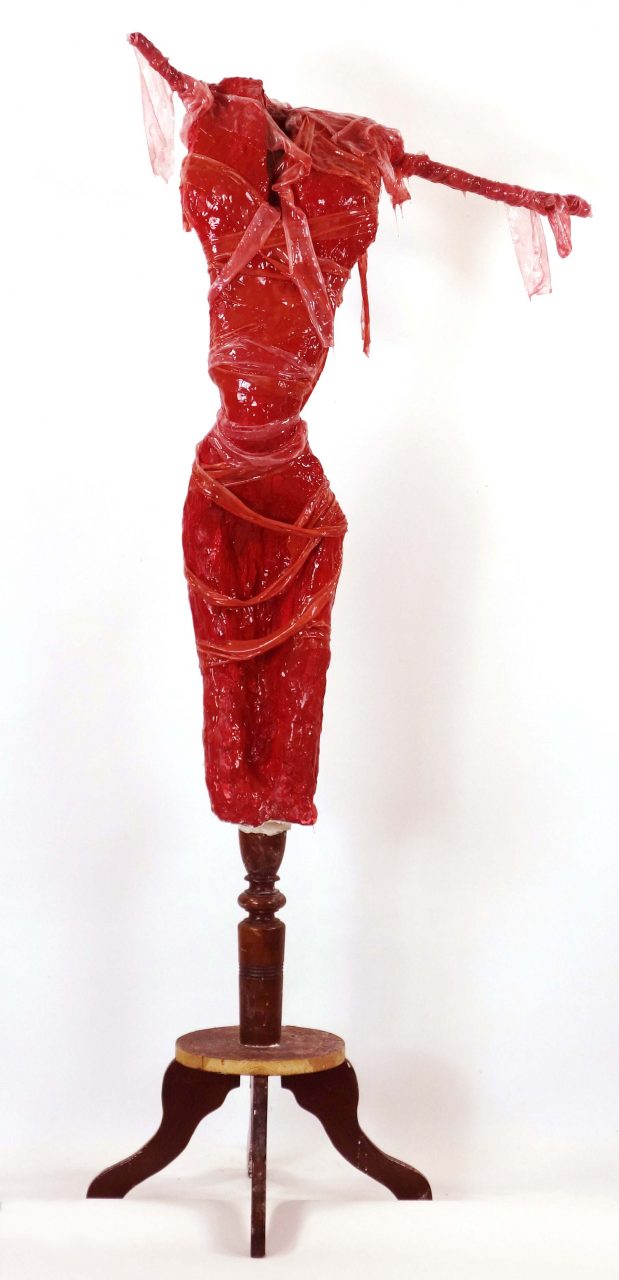
Leuchte, 2016, Gips, Holzständer, Stöcke, Acrylfarbe, Pigmente, Silikon, Seide, u.a. ca. 156 x 65 x 47 cm
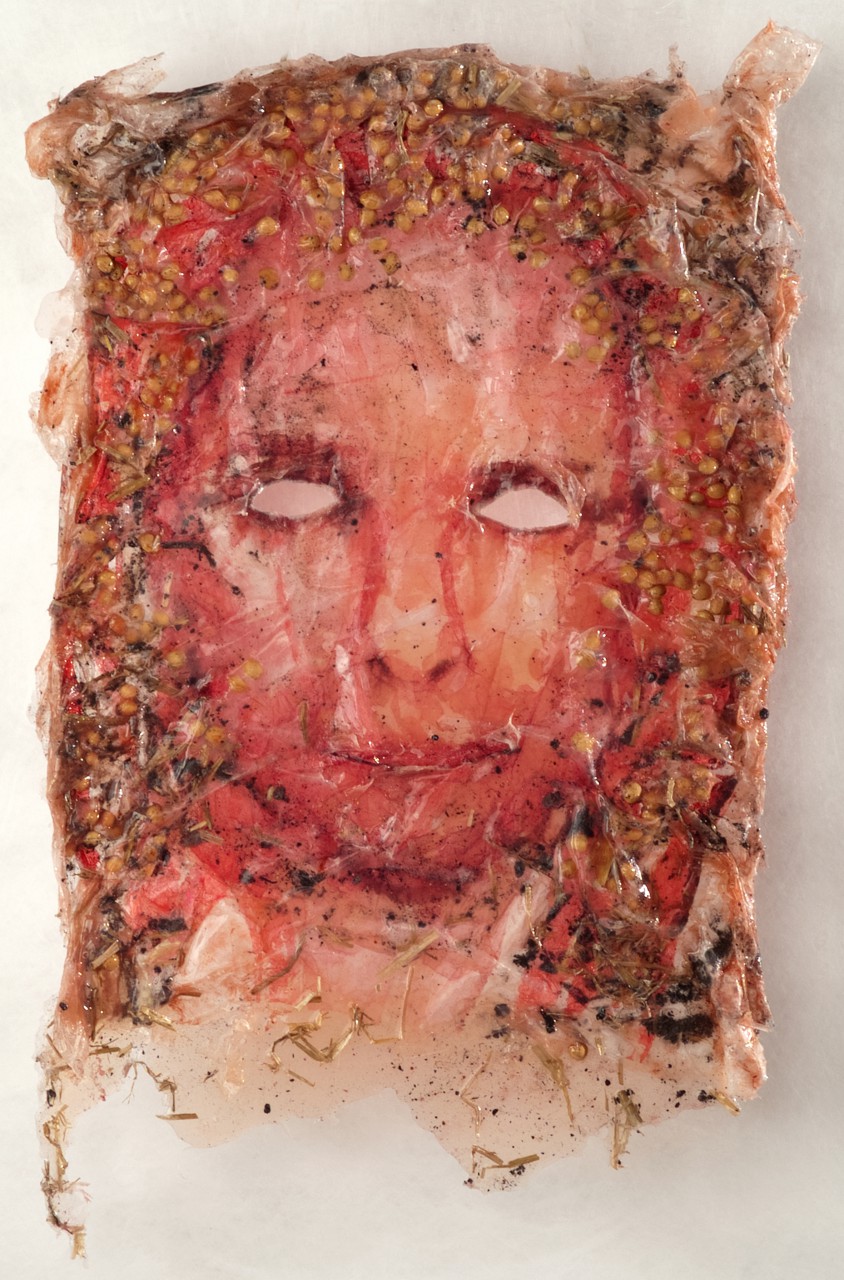
Kirsche, 2015, Mischtechnik mit Silikon und Papier, Samen, Pigmenten u.a., 58 x 37 cm (Foto: www.foto-tham.de)
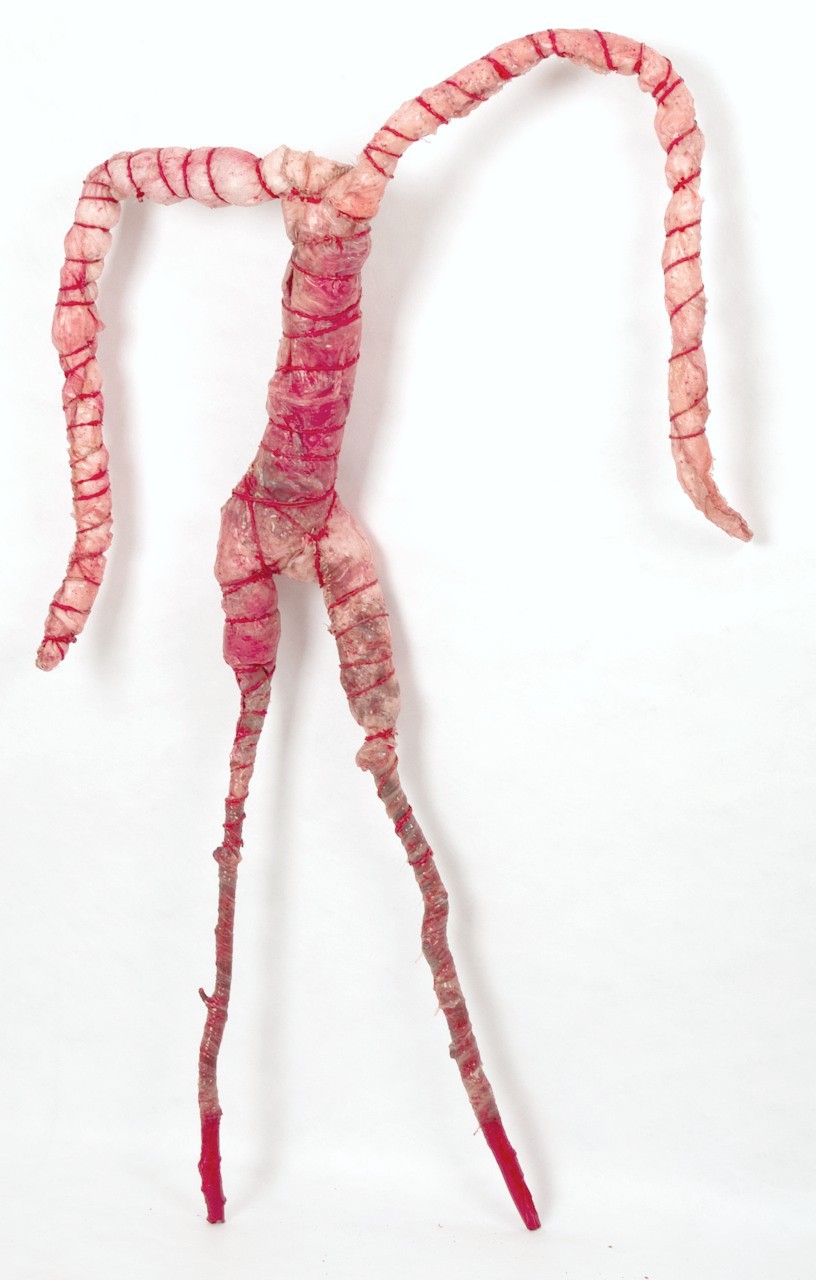
Underdog. Silicone, string, silk, pillow stuffing, seeds, etc., approx 160 × 100 × 15 cm (variable) (Photo: Julia Tham)
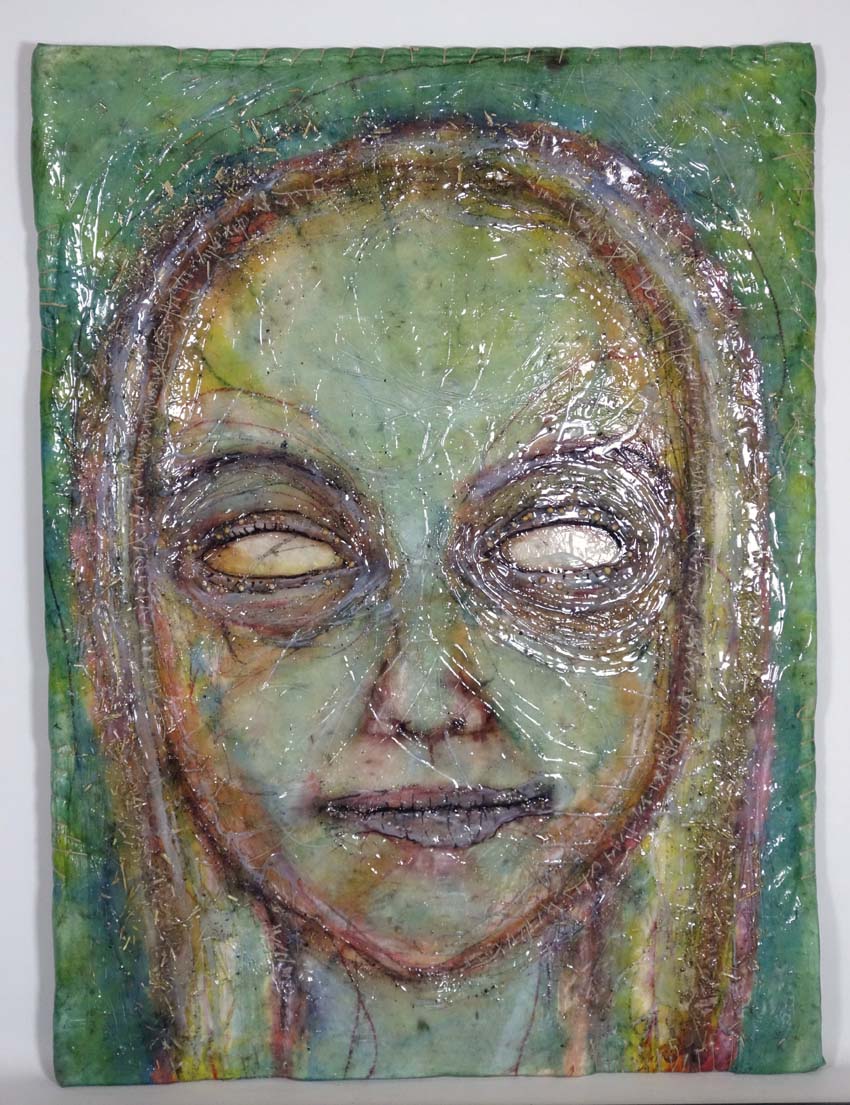
Abierta, 2015, Mischtechnik mit Silikon, Schnur, Pigmenten, Samen, Stroh, u.a. auf Leinwand, 160 x 120 cm
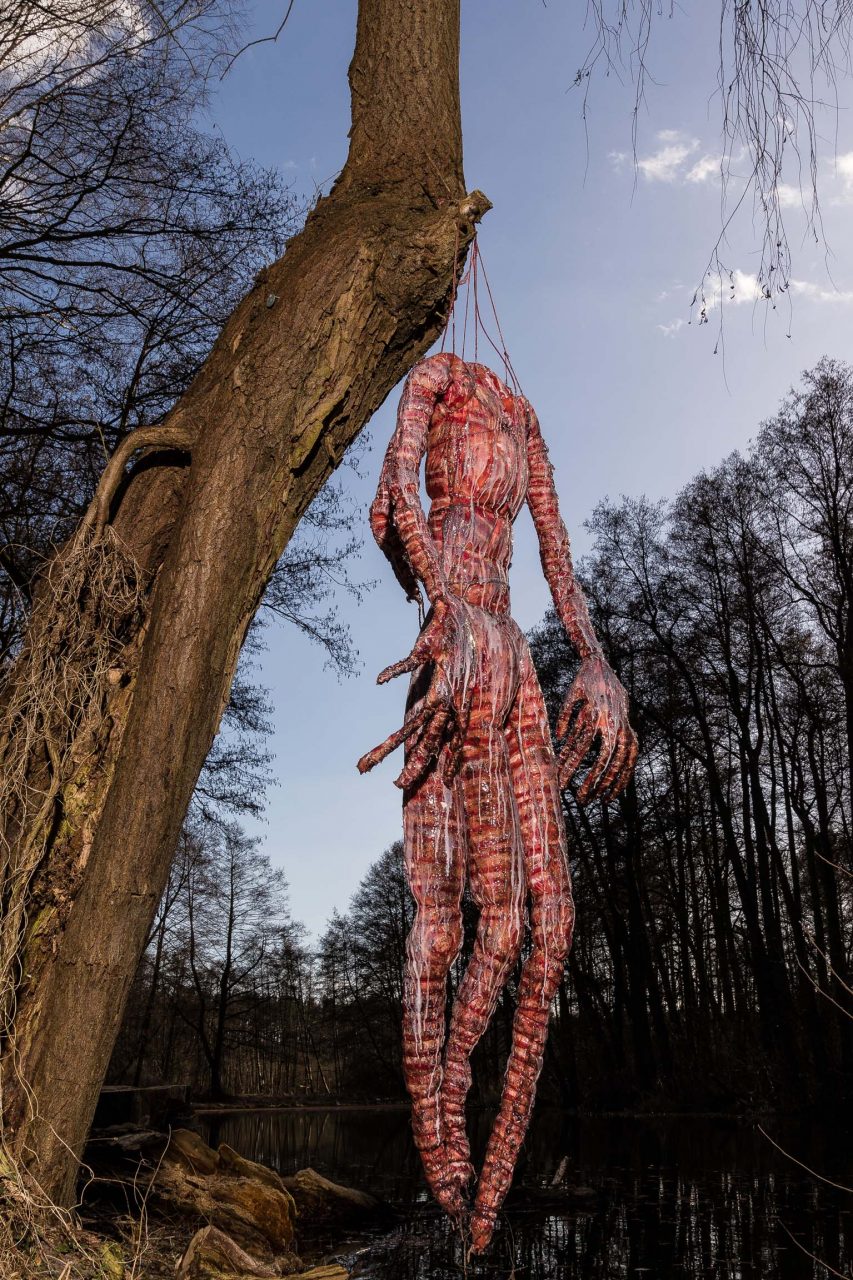
Leibgesum, 2017, Silikon, Schnur, Seide, Kissenfüllung, Erde, Acrylfarbe, Pigmente, u.a., ca. 215 x 30 x 65 cm (variabel) Foto: www.christoph-neumann.com
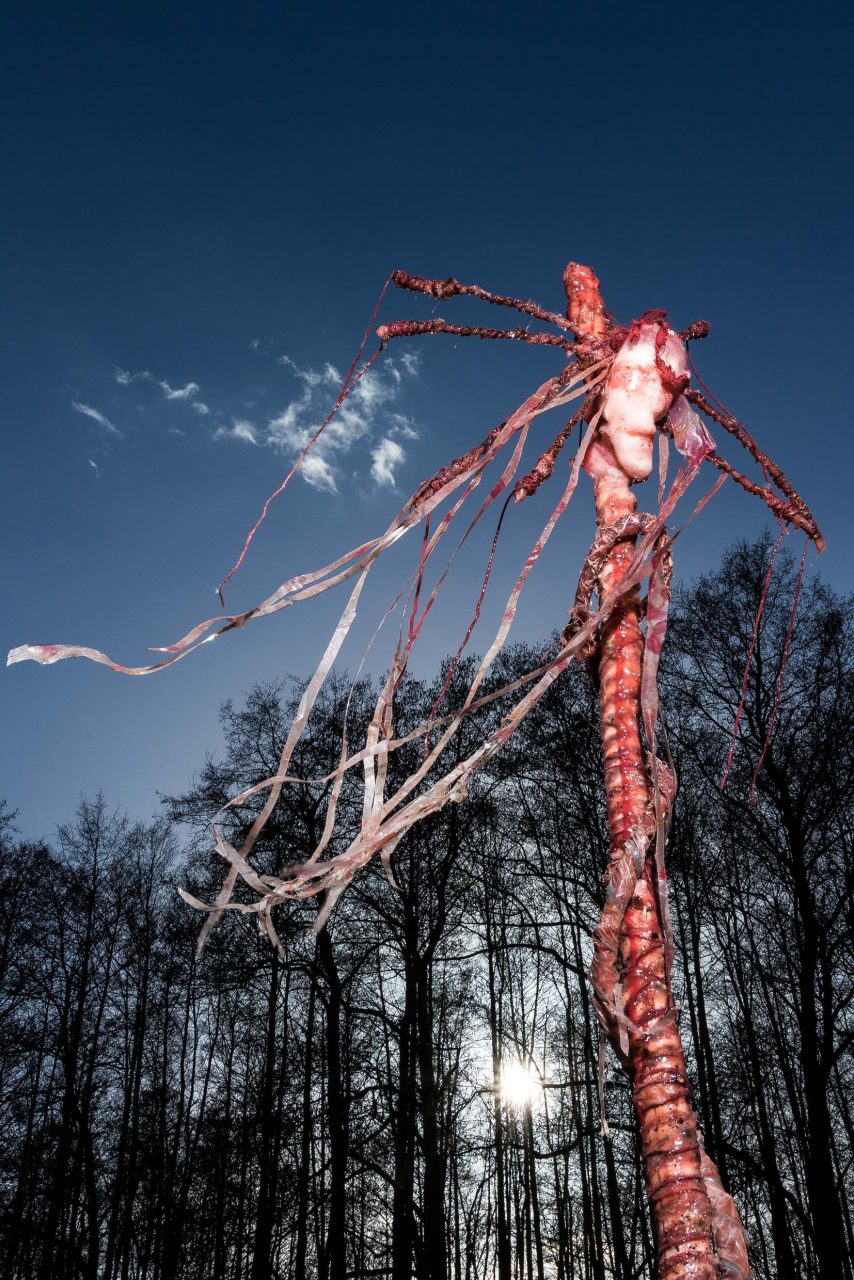
Stabgehöll, 2016, Silikon, Schnur, Seide, Kissenfüllung, Samen, Erde, Stöcke, Pigmente u.a., 217 x 80 x 17 cm Foto:www. christoph-neumann.com
Silicone Levinas: The art of Corry Siw Mirski
What is it about your studio space that inspires you?
I have a lot of different materials, colors and tools around me. It's a bit like a big playground for creativity and freedom.
What is your favourite material to work with? How has your use of it evolved throughout your practice?
Silicone , pigments , seeds, soil , straw , finds , wax , ink, watercolor pencils , felt-tip pen, silk , paper, plaster. The materiality is very important. It is not only form, it is also always content. Everything is a permanent process.
What themes do you pursue?
Inner freedom and how to manage our deepest fears.
What advice has had the biggest impact on your career?
Be free. Don't think about tomorrow. Live now. Forget what they told you. Don't think too much. Don't be afraid. You can't be wrong.
If you could only have one piece of art in your life, what would it be?
Red Room (Child) by Louise Bourgeois
If you weren´t an artist, what would you be doing?
Philosopher.
What are your favourite places besides your studio?
The garden.
2017
"... bis ans Ende und wieder ...", Brotfabrik Gallery, Berlin
2015
"Rendevous mit dunklen Seiten", Oranienwerk, Oranienburg
"For Master", Akademie für Malerei, Berlin
show all
2020
Grande Finale, Brotfabrik, Berlin
2019
Check Mate, by Wolfgang Flad and Jerry Kowalsky, BcmA, Berlin
2018
WonderWomanArtB!tch, by Britta Helbig, Kosmetiksalon Babette, Berlin
show all
1991 - 1998, Philosophy (focus aestheics), Unniversity of Vienna (Austria) (Magistra/Master)
2010 - 2015, Art, master class Ute Wöllmann, Akademie für Malerei Berlin (Germany)